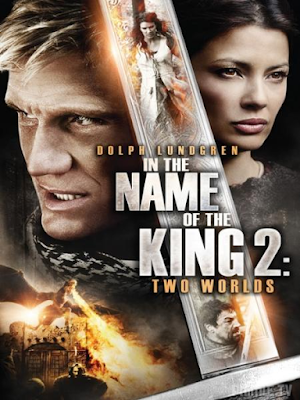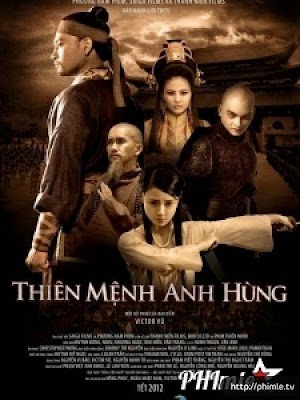
Inglourious Basterds
Định Mệnh (2009)
- Time:
- Directors: Quentin Tarantino
- Country: Germany,
- Genres: War, Thriller,
- Release Year: 2009
- IMDB: 8.4
- Actors: Brad Pitt, Mélanie Laurent, Christoph Waltz, Eli Roth, Michael Fassbender, Diane Kruger, Daniel Brühl, Til Schweiger, Gedeon Burkhard, Jacky Ido, B.J. Novak, Omar Doom, August Diehl, Denis Ménochet, Sylvester Groth, Martin Wuttke, Mike Myers, Julie Dreyfus, Richard Sammel, Alexander Fehling, Rod Taylor, Sönke Möhring, Samm Levine, Paul Rust, Michael Bacall, Arndt Schwering-Sohnrey, Petra Hartung, Volker Michalowski, Ken Duken, Christian Berkel, Anne-Sophie Franck, Léa Seydoux, Tina Rodriguez, Lena Friedrich, Ludger Pistor, Jana Pallaske, Wolfgang Lindner, Michael Kranz, Rainer Bock, André Penvern, Sebastian Hülk, Buddy Joe Hooker, Carlos Fidel, Christian Brückner, Hilmar Eichhorn, Patrick Elias, Eva Löbau, Salvadore Brandt, Jasper Linnewedel, Wilfried Hochholdinger, Olivier Girard, Michael Scheel, Leo Plank, Andreas Tietz, Bo Svenson, Enzo G. Castellari, Samuel L. Jackson, Bela B., Noemi Besedes, Hélène Cardona, Jake Garber, Sabrina Rattey, Alex Boden, Guido Föhrweißer, Harvey Keitel,
Inglourious Basterds Eng Sub - Định Mệnh Eng Sub (2009)
An Unlikely Setting for Revenge
Imagine a world bathed in the shadows of war, where a small group of soldiers stands out not just for their bravery, but for their audacity. That’s the thrilling premise of Inglourious Basterds, set against the gruesome backdrop of Nazi-occupied France during World War II.
From the very first scene, Quentin Tarantino pulls you into a tense encounter that reformulates the landscape of war films. The chilling dialogue between Colonel Hans Landa and a French farmer not only sets the stage for the film’s exploration of vengeance but does so in a manner that’s both gripping and audaciously humorous.
Speaking of Landa, his character is a sensational embodiment of the film's gripping tension. Played by Christoph Waltz, Landa’s charm combined with his ruthless cunning makes him a formidable antagonist. The way he navigates through the film’s moral grey areas leaves you both fascinated and disturbed, inviting you to ponder the complexities of good and evil.
This juxtaposition of horror and dark humor is quintessentially Tarantino. It keeps you on your toes and adds layers to the narrative that are often missing in traditional war films. Just when you think you've pegged where the story is heading, it twists and tus, delivering shocking revelations and unexpected encounters.
The Basterds and Their Mission
At the heart of Inglourious Basterds is a crew of Jewish-American soldiers known simply as "The Basterds." Led by the fearless Lt. Aldo Raine, played brilliantly by Brad Pitt, they are on a vengeance-fueled mission to instill terror in the hearts of Nazis. Each soldier boasts their unique personality, creating a ragtag group that makes you root for them despite their gruesome methods.
One standout moment involves their famous scalping tactics, which may sound horrific, but Tarantino presents it with such a blend of absurdity that it dances on the edge of dark comedy. This isn't just a story of violence; it's a subversive take on the revenge genre, reimagining the traditional narrative about war heroes.
Moreover, the interactions between the Basterds themselves reveal their camaraderie amidst chaos. There’s a sense of brotherhood built from shared suffering and a common goal, making each character unforgettable. The film threads together violent encounters and moments of levity seamlessly, a testament to Tarantino's storytelling prowess.
Yet, while Aldo Raine and his squad seek retribution, the film's narrative also dives deeply into the plight of Shosanna, a French-Jewish girl played by Mélanie Laurent. Her survival story intertwines with the Basterds, showcasing how personal vendettas emerge in the midst of mass hatred. It’s a brilliant narrative twist, demonstrating the interconnectedness of their fates.
The Power of Cinema and Storytelling
One of the most captivating aspects of Inglourious Basterds is its profound commentary on the nature of storytelling and cinema. Shosanna’s character, running a movie theater in Paris, embodies the power of film as both a means of escape and a weapon against oppression. Her trajectory parallels the Basterds’ violent mission, emphasizing that stories—whether told through film or through actions—can shape reality.
The climactic scene where Shosanna orchestrates an audacious plan during a film premiere highlights this notion beautifully. As her own life and the lives of countless others hang in the balance, she proves that narrative control can wield significant power. The film cleverly transforms the act of watching cinema into a charged experience, illustrating how art can influence and provoke thought.
In every scene, Tarantino brings out the significance of film in society. This method of storytelling raises questions about memory, history, and the narratives we choose to celebrate or condemn. It urges viewers to consider who writes history and who is left out, ultimately drawing connections between the power of cinema and the reality faced by those living under oppression.
Transitioning from a bold exploration of revenge to a reflection on art, Inglourious Basterds truly masterfully blends themes of war, identity, and art, all while keeping audiences entirely captivated.
A Cinematic Work of Art
Visually, Inglourious Basterds is a feast for the eyes. The cinematography is breathtaking, with each shot carefully curated to heighten the emotional stakes. Tarantino has an eye for detail; every frame is packed with intent, making the viewing experience feel richly layered and aesthetically pleasing.
The film’s score is equally exquisite, enhancing the atmosphere without overpowering the narrative. Ennio Morricone’s iconic music interlaces with Tarantino’s eclectic soundtrack, ensuring that every moment resonates with viewers long after the credits roll. It becomes a character in itself, guiding emotional responses and elevating pivotal scenes.
Additionally, the performances are a highlight. Christoph Waltz’s portrayal of Colonel Landa won him an Academy Award, and rightfully so. His performance captivates; it’s unsettling yet mesmerizing, making his character one of the most memorable villains in cinematic history.
As you navigate through this film, you're often reminded of its depth. Watching Inglourious Basterds is not just enjoying a movie; it’s about engaging with complex themes and celebrating art’s transformative power. Tarantino leaves no stone untued, serving up what might be considered one of the most audacious rewrites of history.
If you’re a fan of reimagined narratives that mix historical events with creative storytelling, then Inglourious Basterds is a must-see. It's a film that doesn't shy away from its violent themes while also striking a balance between laughter and horror.
In this tale of vengeance, camaraderie, and the impact of storytelling, Inglourious Basterds invites discussions that go beyond the surface. Whether you’re drawn in by the humor, the thrilling plot, or the deeper commentary on cinema and history, it’s a film that deserves a spot on your must-watch list.
So, grab some popco, find a comfy spot on the couch, and dive into this unforgettable film that challenges perceptions of war, history, and humanity itself. You won’t regret it!











